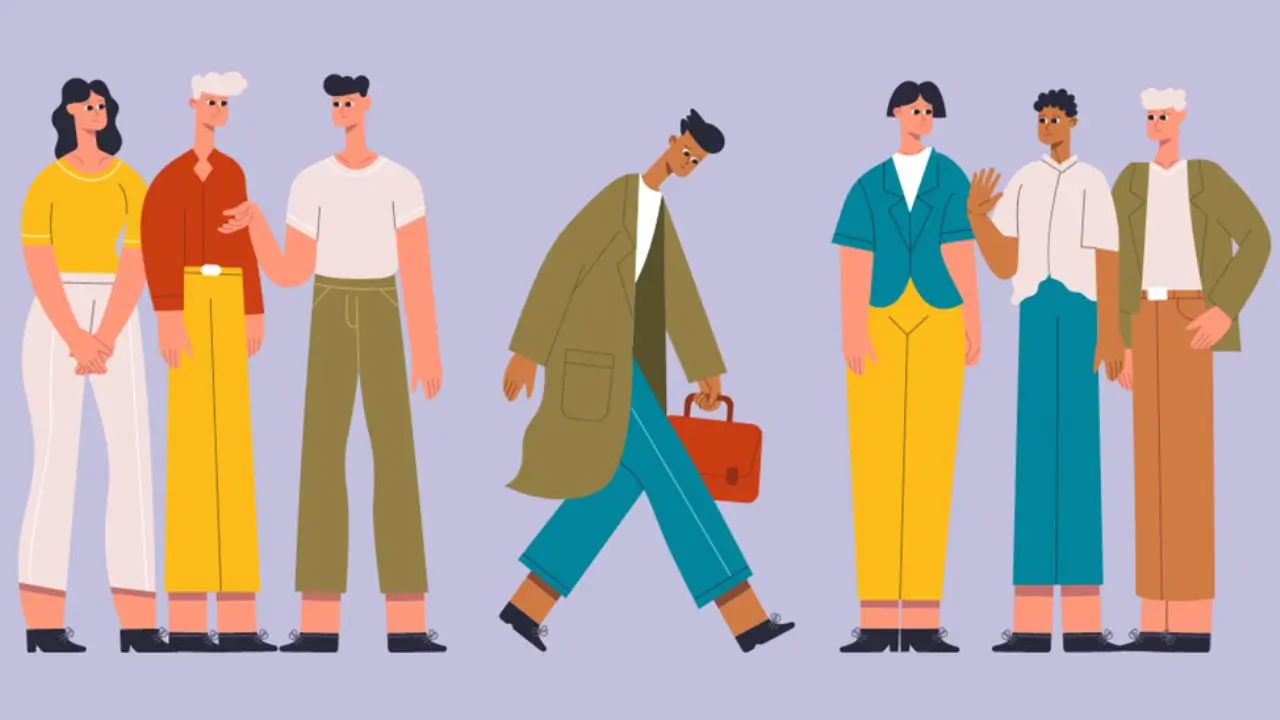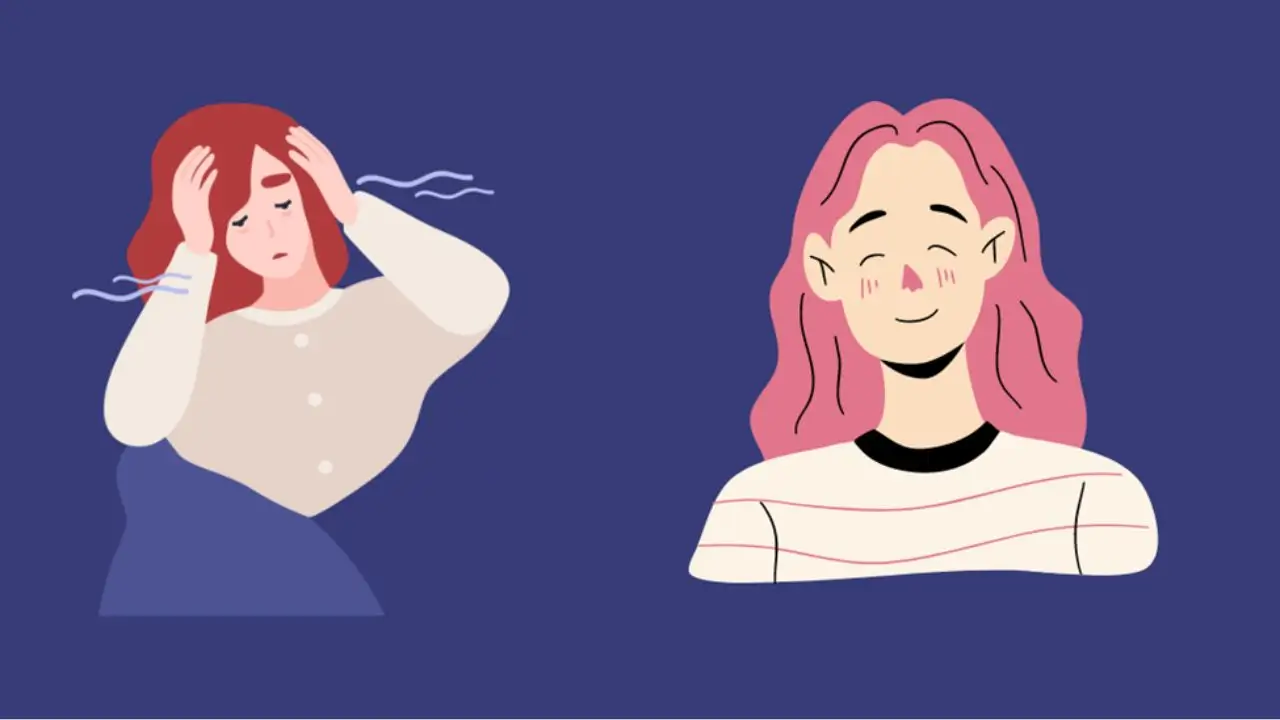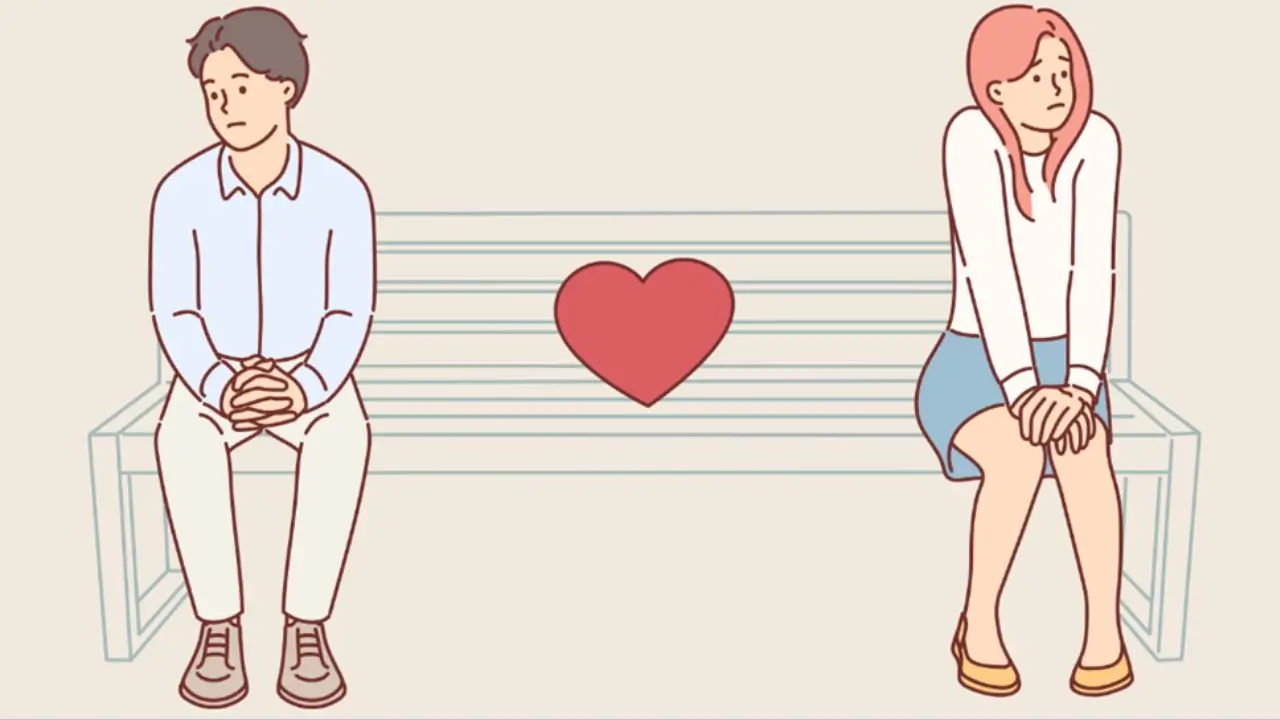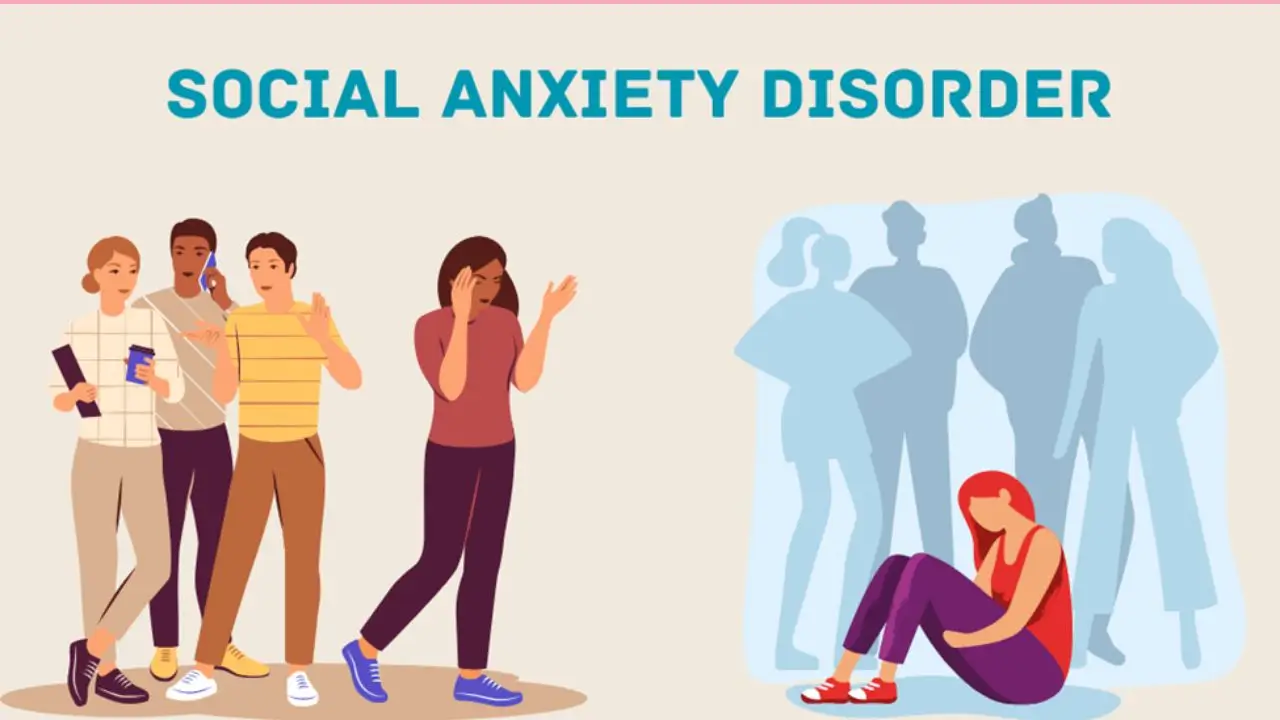Do you fear what other people will think of you? Do regular social situations make you feel self-conscious? Do you shy away from new social situations out of fear or anxiety? You could have social anxiety disorder if you have experienced these symptoms for at least six months and they make it difficult for you to carry out daily activities like interacting with coworkers or peers.
Social anxiety disorder, also known as social phobia, is characterized by intense anxiety, self-consciousness, and embarrassment during routine social interactions due to the fear of being closely observed or negatively evaluated by others.
The fear can interfere with daily activities such as going to school or work. It may even make maintaining friendships difficult. Shyness and social anxiety are not the same thing. While shyness can make it challenging to socialize, learn, and work, it doesn’t interfere with life as much as social anxiety does.
Is Social Anxiety Disorder Common?
It is common to have social anxiety disorder. Worldwide, it affects five to ten percent of the population. Following substance use disorder and depression, it is the third most prevalent mental health issue.
Social Anxiety Symptoms
The symptoms include:
- sweating
- trembling or shaking
- a rigid body stance
- blushing
- nausea
- difficulty speaking
- dizziness or lightheadedness
- rapid heart rate
- Frequently analyzing one’s own flaws in social interactions
- mind goes blank
- severe anxiety or fear in social settings
- severe anxiety when interacting or conversing with strangers
- Fear that people will see that you’re nervous
- avoiding situations or conversing with others out of a fear of looking foolish
- staying out of situations where you could be the focus of attention
- Fear of being negatively judged in certain situations
- Fear of having bodily signs that could make you embarrassed, like sweating, blushing, shaking, or trembling when speaking
- Fear of an upcoming activity or event-related anxiety
- anticipation of the worst outcomes following a bad social situation.
Also Read: Anxiety Attack: Causes, Symptoms, Management and Treatment
Other common concerns
It may be difficult to deal with common, everyday situations, such as:
- Dating
- Replacing goods at a store
- Having conversations with strangers or people you don’t know well
- Initiating conversations
- walking into a room where people are already present
- making use of a public washroom
- maintaining eye contact
- Attending a job or educational institution
- Eating in public
- going to social events or parties

Causes of Social Anxiety Disorder
Although the exact root cause of social anxiety disorder is not known, a number of things could lead to it, including:
- Social anxiety disorder can run in families, but the exact reason why certain family members develop it while others do not is unknown.
- Researchers have discovered that fear and anxiety are associated with multiple brain regions and that the functioning of these regions is influenced by genetics.
- Scientists believe that physical, biological, and genetic factors are probably involved. Dopamine, glutamate, and serotonin imbalances can result from issues with neurotransmitter systems. These brain chemicals aid in mood regulation.
- Environmental influences might have an impact, but only in the context of a complex interaction with genetic and biological characteristics.
- physical, emotional, or any other kind of abuse
- negative experiences with peers
- Having over-controlling parents
- having a style of attachment that is insecure
- Substance abuse
Shyness Vs Social Anxiety Disorder
Shyness can happen to anyone at any time. When you have social anxiety disorder, you find it difficult or impossible to carry out regular tasks like visiting the grocery store or interacting with others. As a result, social anxiety disorder may have a detrimental impact on your relationships, job, and education. Occasionally, feeling shy has no impact on these sorts of things.
Generally speaking, there are three key characteristics that set social anxiety apart from shyness:
- How much of an impact does it have on your daily life?
- How far do you avoid specific situations?
- How much anxiety and fear are you experiencing?
Many individuals with social anxiety disorder believe that their social anxiety is a personality quirk, so they don’t try to get support or treatment. If you have persistent, severe symptoms when you’re in social situations, it’s important that you contact your healthcare provider.

Risk factors
The following are some factors that can make someone more likely to develop social anxiety disorder:
- Family history: If either of your siblings or your biological parents suffer from social anxiety disorder, you are more likely to get it as well.
- Temperament: A child may be more vulnerable if they exhibit signs of shyness, nervousness, withdrawal, or restraint around unfamiliar people or situations.
- New personal or professional requirements: The onset of social anxiety disorder symptoms usually occurs in adolescence, but it is also possible for symptoms to appear for the first time when meeting new people, speaking in front of an audience, or delivering a significant work presentation.
- Having a noticeable appearance or health issue: For instance, Parkinson’s disease-related facial deformity, stuttering, or tremors can make a person feel more self-conscious and possibly even set off social anxiety disorder.
- Negative experiences: Children who endure rejection, ridicule, humiliation, teasing, or bullying may be at a higher risk of developing social anxiety disorder. In addition, this disorder may be linked to other adverse life experiences like abuse, trauma, or conflict in the family.
Also Read: Generalized Anxiety Disorder: Everything You Need to Know
Complications
This condition may result in:
- Negative self-talk
- Trouble being assertive
- Isolation and difficult social relationships
- Substance abuse
- Hypersensitivity to criticism
- Low academic and employment achievement
- Low self-esteem
- Suicide or suicide attempts
- Poor social skills
Social anxiety disorder frequently coexists with other anxiety disorders and a few other mental health conditions, especially major depressive disorder and substance abuse issues.

Diagnosis
While there isn’t a specific medical test to diagnose social anxiety disorder, a physician will most likely use the Diagnostic and Statistical Manual of Mental Disorders, Fifth Edition (DSM-5) to determine the likelihood.
They’ll probably inquire about:
- Symptoms
- Family history
- other health conditions
The DSM-5 lists the following criteria for diagnosing social anxiety disorder:
- A particular circumstance almost always causes anxiety or fear.
- The individual’s feelings of fear and anxiety cannot be explained by other symptoms or medical conditions.
- a fear of one or more social settings where one could be subject to other people’s attention
- The individual either stays away from the situation or shows up extremely nervous or afraid
- being afraid to act in a way that might cause others to view you negatively or that might irritate or offend them
- Fear and anxiety interfere with day-to-day activities and are typically persistent for at least six months.
- The level of fear is excessive, given the threat.
Also, they might want to rule out additional conditions, like:
- a personality disorder
- a substance-related issue
- worries regarding a medical condition,
- being obese
- or a physical trait like a facial burn
Treatment
Psychotherapy, sometimes known as “talk therapy,” medication, or a combination of the two, is typically used to treat social anxiety disorder.
Psychotherapy
A well-researched form of psychotherapy called cognitive behavioral therapy (CBT) is frequently used to treat social anxiety disorder. In order to reduce anxiety and fear, cognitive behavioral therapy (CBT) teaches you alternative ways of thinking, acting, and responding to situations. Additionally, CBT can assist you in developing social skills, which are crucial for the treatment. CBT is the most researched and effective form of psychotherapy.
A cognitive behavioral therapy approach called exposure therapy helps you participate in activities you have been avoiding by gradually facing the fears that underlie an anxiety disorder. Sometimes relaxation techniques are combined with exposure therapy. When CBT is administered in a group setting, it can also have special advantages in treatment.
Acceptance and commitment therapy is an additional treatment option for social anxiety disorder. In contrast to CBT, ACT addresses negative thoughts differently and employs techniques like goal-setting and mindfulness to lessen discomfort and anxiety. Since ACT is a more recent type of psychotherapy treatment than CBT, there is less information on its efficacy. But, as different therapies suit different types of people, it can be beneficial to talk with a mental health professional about what kind of therapy might be best for you.
Medication
This disorder can be effectively treated with a variety of medications, such as:
- Antidepressants
- Beta-blockers
- Anti-anxiety medications
Prognosis
Treatment for social anxiety disorder works very well, whether it takes the form of medication, cognitive behavioral therapy (CBT), or both. To manage their symptoms, some people may need to take medication for the rest of their lives. Some people might only require a brief course of medication or psychological counseling.
The condition can be severe if left untreated. It can lead to poor academic performance, a decline in work performance, relationships of lower quality, and a general decline in quality of life. If they don’t receive treatment, a significant portion of people go on to experience major depressive illnesses or alcohol use disorders. For this reason, if you have symptoms of social anxiety, it is important that you get in touch with your healthcare provider and seek treatment.
Tips to manage Social Anxiety Disorder
If you’ve already received a diagnosis of social anxiety disorder, you can take the following steps to feel better and manage your symptoms:
- Make sure you take your medication on a regular basis, and don’t skip doses if you use it to treat your social anxiety.
- Get enough rest and exercise.
- Make sure to visit your therapist on a regular basis if you engage in talk therapy.
- Visit your doctor on a regular basis.
- Avoid using recreational drugs and alcohol.
- Seek assistance from friends and family.
- Think about becoming a member of a support group for people who have social anxiety.
Also Read: Overcoming Daily Anxiety: 13 Tips and Techniques
What if someone close to me has social anxiety disorder?
There are several ways you can help and encourage someone who has social anxiety, such as:
- Acquire knowledge about social anxiety disorder: Learn more about social anxiety disorder so that you can empathize with them. Never presume to know what they are going through.
- Be empathetic: Don’t minimize or disregard their emotions and experiences. Tell them you’re available to support them and listen to them. Consider placing yourself in their position.
- Support them to get professional help and treatment: A person with social anxiety disorder benefits from having a compassionate and understanding friend or family member, but in order to treat and manage their social anxiety, people require cognitive behavioral therapy (CBT) and/or medication. In the event that they have symptoms of social anxiety, encourage them to consult their medical professional.
- Have Patience: After beginning treatment, someone may not fully recover for some time. Recognize that, although it will take time and effort, their symptoms and behaviors are going to get better.
A Spirico Summary
People all over the world suffer from social anxiety disorder, which is a common condition. Social situations cause fear in such people. They might avoid going out, going to work, going shopping, or going anywhere else where people might be around if the feeling is so strong.
Though it’s unlikely, the person worries that they will be judged by others, offend someone, or somehow embarrass themselves.
Even though social anxiety can be frightening, there is hope: it is treatable. You’re not alone if you show symptoms of social anxiety disorder or if a diagnosis has been made. You’ll recover faster if you seek assistance and treatment as soon as possible.
